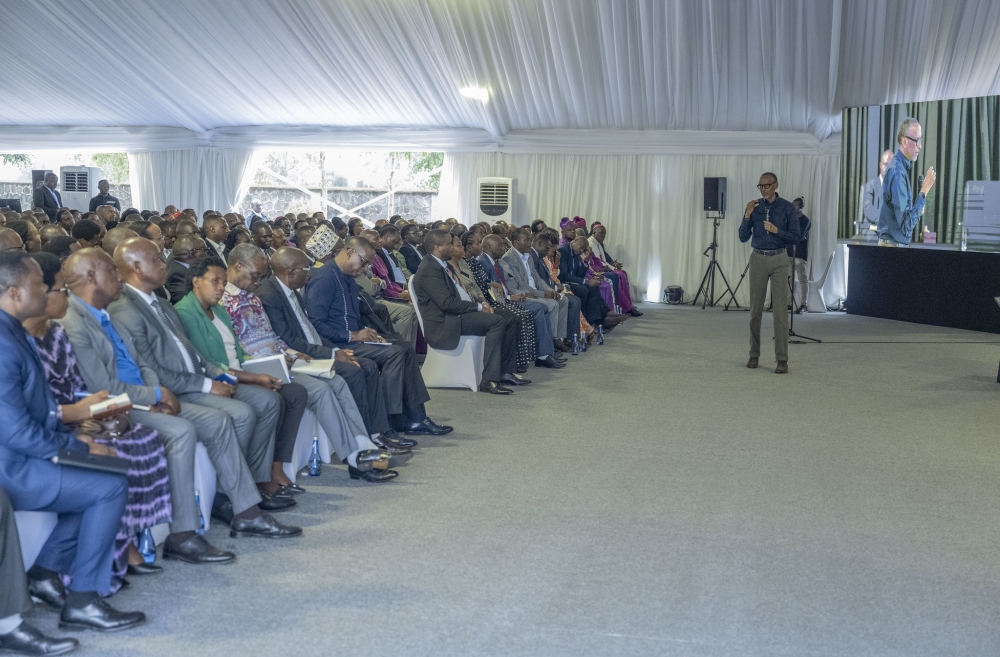

Last Friday I was fortunate enough to be invited, along with hundreds of opinion leaders from Northern and Western provinces and a few journalists, to a meeting that was convened by the President himself.
The topic? The manifestation of sectarianism in the region that was exposed by the ‘Abakono’ incident a month or so ago (which I actually penned a column on).
What I didn’t know, and what the President revealed during the meeting held in Musanze, was that the crowning of the clan ‘chief’ that took place at the beginning of last month, was just a tip of the sectarian iceberg. I learnt that things were much worse than I had thought.
I had previously, and naively, called the incident a ‘canary in the coalmine moment for Rwandans’. What I discovered on Friday was that what the ‘crowning’ (and the involvement of RPF senior cadres, military men and church leaders in the shameful self-aggrandizement) was a loud, blatant manifestation of the rot that, in the president’s own words, revealed the unignorable "stench” of sectarianism.
He spoke to us about the corruption in the tendering process that he discovered, the family groups that had literally replaced local government structures and the investment groups who based membership on ethnic considerations.
When he passed the microphone to the attendees, they, too, revealed more. A local pastor talked about churches that made it obvious to some of their congregants that ‘they’ were not wanted there.
And even scarier, at least to me, an executive secretary from one of the sectors in the province, revealed that sectarian groups in her area had made it impossible for her to effectively govern. So much so that she would have to get these powerful groups’ say-so before anything happened in her area of administration. They had figuratively straitjacketed her!
After reminding us where we had come from, what we had gone through, and what progress we had made since, the President then posed to us a fundamental question, what did we want for ourselves as Rwandans? Did we want to remain poor and insignificant? Or did we want more, and better for ourselves? And if it was the latter, was our behavior manifesting that choice?
Giving examples of countries like South Korea and Vietnam, that were in the same boat we were just decades ago, razed by conflict and largely undeveloped, he asked us to gauge where they were today and why they were where they were.
Driving back to Kigali I continued to mull over his words and ask myself, could we allow for the proliferation of sectarian groups and grow at the speeds we needed to get out of the hole we had dug ourselves into? I did a little bit of research on one of the societies with the most ‘developed’ sectarian systems, the middle-eastern state of Lebanon.
And after reading academic treatises and countless articles written by both local and foreign commentators, I wasn’t shocked to discover that the only people who gained from all the sectarianism were the corrupt politicians, their private sector lackeys and the religious elite.
The citizens themselves? They were left fending for themselves, agitating unsuccessfully for a very different reality.
So, with that research in mind, as well as our own lived experience as Rwandans, I asked myself, could we pull off Vision 2050 while at the same time allowing ourselves to join little sects all over the place? I don’t think so.
We cannot have our cake and eat it too. We cannot both be the country (and a people) that thinks big, and then allow ourselves to remain small-minded. That would be oxymoronic. And, if I may be crude, really moronic.
The writer is a socio-political commentator


